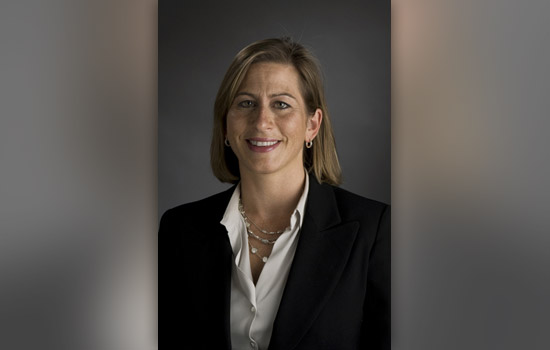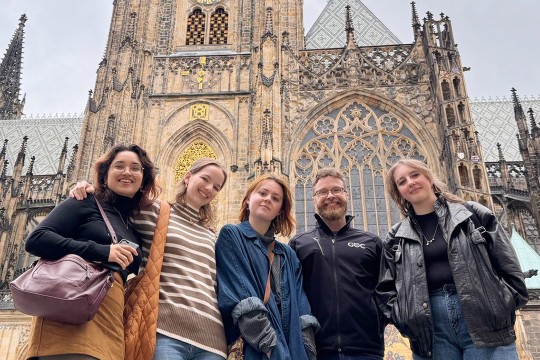International environmental leaders meet at RIT
RIT professor Lisa Greenwood represents the U.S. in re-evaluation of global practices
Lisa Greenwood
Rochester Institute of Technology recently hosted a prestigious meeting of international environmental management leaders, with a member of its faculty leading the U.S. delegation to address global environmental management priorities.
It was the first time RIT had hosted the U.S. meeting of environmental management leaders working toward revising the International Organization for Standardization’s ISO 14001 and 14004 international policies and guidelines. Experts from 23 countries gathered to address global environmental management priorities.
Lisa Greenwood, lecturer in RIT’s College of Applied Science and Technology and a representative on the U.S. advisory group to ISO’s environmental management technical committee, led the U.S. delegation. She says the revisions will address some important issues related to strategic environmental management, sustainable development and social responsibility as it pertains to organizations.
“International standards like ISO 14001 can provide a sense of global governance for those companies that choose to adopt them,” says Greenwood, who helped coordinate revisions proposed by individual countries at the meeting in October. “It allows for more consistency in environmental management across multi-site and multi-national organizations, as well as in some industries as a whole.”
First enacted in 1996, these voluntary standards have become widely recognized and adopted to address environmental challenges, primarily in the industrial sector. Work began in early 2012 on revising current standards to address evolving stakeholder expectations and emerging challenges in the environmental management field. Some of the changes under consideration will address challenges ISO has identified in relation to sustainability and social responsibility, environmental performance improvement, legal compliance, stakeholder engagement, communication, and international policy agendas. The revision process will span three years, with meetings taking place around the globe. The assembly meets next at the University of Gothenburg in Sweden in January 2013. New standards will be published in 2015.
“Each country has the opportunity to submit comments and then we work through the comments and draft text during the meeting,” she says. “It’s interesting because it is consensus-based, so we really try to come to some sort of agreement. Different countries, different regions have different issues, concerns and agendas, so that all comes into play. But, at the end of the day, we are all professionals at the table. If you boil it down to the interests and issues, not so much the positions people have entrenched themselves in, you can find a compromise, you can move forward and create something that can be useful, beneficial.”
RIT’s civil engineering technology/environmental management and safety department has brought international leaders to campus on other occasions. Department Chair John Morelli established the Environmental Management Leadership Symposia, a professional conference, and on alternating years, RIT hosts environmental managers from around the globe to address critical industry issues. The department also publishes The Journal of Environmental Sustainability, an international peer-reviewed journal. Faculty like Greenwood act as industry and academic leaders.
Greenwood has participated on the ISO technical committee since 1999 and began representing the U.S. in international meetings in 2006. She teaches courses in RIT’s Environmental Sustainability, Health and Safety program, as well as in the Environmental, Health and Safety graduate program. The standards she is working to update are also used as part of the coursework, with her insider’s perspective about their development.
“Our entire master’s program is loosely structured on the ISO 14001 management systems standard. Our core courses address the requirements of the standard, starting with policy and planning components,” she says. Students in the master’s program are both working professionals and full-time students; many have worked in organizations that have applied ISO 14001 and 14004.
“And there is a need for a more global approach for environmental management when you have international natural resources and environmental impacts,” she adds, highlighting RIT’s broader international presence with campuses in Croatia, Kosovo, Dubai.













